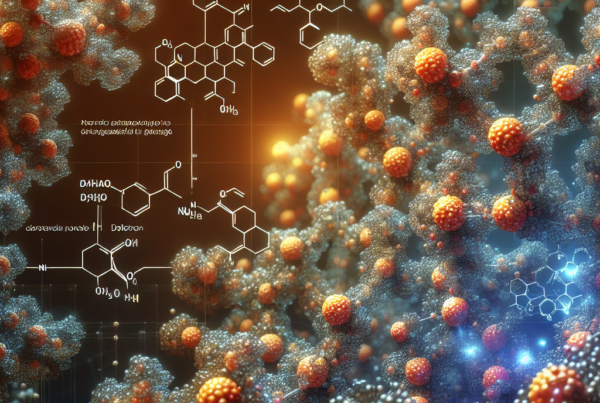Table of Contents
Understanding Addiction
Addiction is a devastating neurological disorder that causes a person to use substances that are harmful to them compulsively. Although the precise cause of addiction isn’t completely understood yet, researchers know that it is prompted by the interaction between a person’s biological characteristics and their psychological makeup that causes changes in the way the brain’s pleasure, reward, and memory systems work.
What Is Self-Esteem?
Self-esteem is a person’s estimation of their worth and their value as a human being. It measures how much we value ourselves, no matter what circumstances bring. Self-esteem also includes our feelings about our identity, sense of belonging, and estimation of our competence.
Self-esteem is built up or destroyed in cycles. A person with good self-esteem will also be self-confident, allowing them to meet challenges effectively. As self-confident person learns to manage difficult situations successfully, their self-esteem is strengthened. People with high self-esteem are also more resilient to setbacks, as they attribute failure to something they didn’t do correctly, as opposed to feeling as if they are bad people.
Poor self-esteem is also a cycle. When a person with low self-esteem encounters a failure, even a minor setback, their self-esteem drops, leading to more failures, but when they succeed, they attribute their success to luck or chance instead of their ability.
Common Causes of Poor Self-Esteem
Low self-esteem often comes from stress or trauma a person experiences early in life. Children who are abandoned, neglected, or abused will develop poor self-esteem that persists into adulthood. However, any significantly demoralizing event can cause lasting harm to a person’s self-esteem, even during adulthood. Misfortunes such as a divorce, job loss, or financial difficulties can diminish a person’s self-esteem and make them question their worth.
Lack of Self-Esteem and Addiction
Substance addiction and self-esteem are highly interrelated. People with chronically low self-esteem usually have inadequate coping skills and turn to addictive substances to help them suppress painful emotions and manage stress. They also use addictive substances to get the approval of their peers and cover up feelings of inadequacy.
But addiction creates much more misery than it covers up, leading an addict to feel even worse about themselves. In this way, a lack of healthy self-esteem and substance addiction become a downward spiral, each condition worsening the other.
Can Self-Esteem Be Raised?
Poor self-esteem is a part of many mental health disorders and substance use disorders, which is why building self-esteem during addiction recovery is so important. One effective and proven way to raise one’s self-esteem is to work with a psychotherapist. Therapists have numerous tools and approaches to help a person in recovery develop improved self-esteem.
One such approach is Cognitive-Behavioral Therapy (CBT), which investigates how a person’s habitual thinking patterns affect their beliefs, behaviors, and emotions. CBT uses the technique of cognitive restructuring to help a person change habitually negative ways of thinking. People are empowered to improve other areas of their lives by learning to think more positively and realistically.
Ways to Keep Higher Self-Esteem
When a person begins their addiction recovery process, their self-esteem will be fragile for a while, but recovery will help all aspects of a person’s life to improve. Keeping one’s self-esteem at a healthy level requires daily effort at first, so with that in mind, here are some steps to keep one’s self-esteem on the rise for a better quality of life.
- Learn to identify and challenge self-defeating and self-destructive patterns of thought. What types of cognitive distortions do you have?
- Become aware of your inner critic. What are the messages that your inner critic sends you? How we talk to ourselves directly affects how we feel about ourselves.
- Counter negative ideas about yourself with positive self-talk.
- Become aware of your mindset. Do you have a negative outlook on your ability to meet challenges, accomplish goals, and live the life you want?
- Stop comparing yourself to others. Measuring ourselves against other people typically results in diminished self-esteem.
- Practice compassion for yourself. Would you treat a friend the same way you treat yourself? If not, consider that kindness should start with yourself.
- Start valuing progress, not perfection. People with low self-esteem often judge themselves by their outcomes and fail to value their progress. Learning to value Incremental improvement is a good way to increase one’s sense of accomplishment and lift self-esteem.
Absolute Awakenings in Morris Plains, New Jersey, offers compassionate treatment for alcohol abuse and alcohol disorders, as well as substance use disorders. At Absolute Awakenings, we understand how hard making changes can be. We know alcoholics and addicts often suffer from low self-esteem because of trauma, and we’re here to offer treatment. If you or a loved one are ready to get help, contact us at 866-768-0528 or visit our admissions department.
References
- Understanding Addiction – HelpGuide.org. https://www.helpguide.org. Published December 6, 2022. Accessed January 3, 2023. https://www.helpguide.org/harvard/how-addiction-hijacks-the-brain.htm
- Cherry K. What Are the Signs of Healthy or Low Self-Esteem? Verywell Mind. Published November 7, 2022. Accessed January 3, 2023. https://www.verywellmind.com/what-is-self-esteem-2795868
- Alavi HR. The Role of Self-esteem in Tendency towards Drugs, Theft and Prostitution. Addict Health. 2011;3(3-4):119-124.
- Pietrangelo A. CBT Techniques: Tools for Cognitive Behavioral Therapy. Healthline. Published December 12, 2019. Accessed January 3, 2023. https://www.healthline.com/health/cbt-techniques
- Scott E. How Cognitive Distortions Can Fuel Your Stress. Verywell Mind. Published November 24, 2020. Accessed January 3, 2023. https://www.verywellmind.com/cognitive-distortions-and-stress-3144921
- Fortune EE, Goodie AS. Cognitive distortions as a component and treatment focus of pathological gambling: a review. Psychol Addict Behav. 2012;26(2):298-310. doi:10.1037/a0026422
Absolute Awakenings Treatment Center Editoral Guideline
At Absolute Awakenings, we take information integrity seriously. We have dedicated our resources to ensure that all content published to our blog is medically sound. As such, all content on our blog has been thoroughly reviewed by a doctorate level clinician such as a Medical Doctor, or Psy.D, so that you can trust all of the data we publish.







